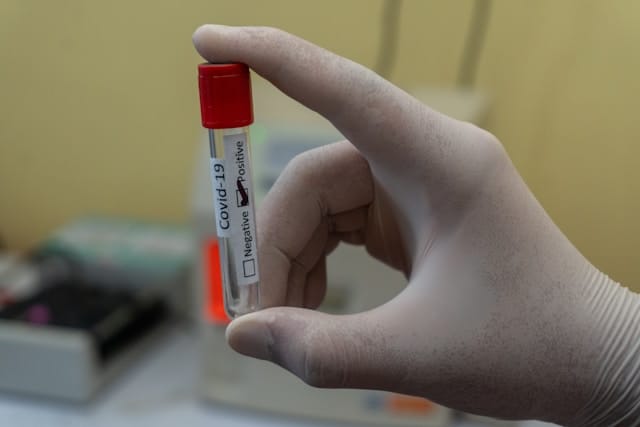Lois Bayliss was fined £3,000 for sending hundreds of letters warning schools about COVID-19 measures.
A solicitor who sent hundreds of letters warning schools and officials they could face legal action over Covid-19 measures has been fined £3,000 by the Solicitors Disciplinary Tribunal (SDT) after being found in breach of professional conduct rules.
Lois Yvonne Bayliss appeared before the tribunal, accused of crossing the line between personal activism and her professional duties. The case centred on her outspoken opposition to government policies on face coverings, routine lateral flow testing, and the vaccination of children aged 12 to 17.
Bayliss argued she acted on her sincere beliefs—based, she claimed, on a body of scientific evidence—that these measures were harmful and that the public was not being given the full facts. She maintained that she had every right to oppose such policies, even in her capacity as a solicitor.
Embed from Getty ImagesThe Solicitors Regulation Authority (SRA), however, said that while solicitors are entitled to personal views, they must still comply with professional rules requiring integrity, fairness, and respect for the law. It alleged that Bayliss moved into professional misconduct when she used her legal status to add weight to her warnings.
The SDT heard that Bayliss sent letters to between 244 and 247 schools, and more than 400 recipients in total. The letters contained implied legal threats, suggesting school leaders could face civil or criminal liability if they enforced mask-wearing, carried out routine lateral flow testing, or facilitated Covid-19 vaccinations for pupils.
The tribunal found that Bayliss relied on her role as a solicitor to bolster her warnings. While it did not find that she encouraged others to send similar letters, or that the threats themselves were inherently misleading, it concluded that significant parts of the allegations were proven.
Specifically, the panel found Allegation 1.1 proved in part, Allegation 1.2 not proved, and Allegation 1.3 proved in full. Collectively, these findings amounted to breaches of Principles 2 and 5 of the SRA Principles 2019—requiring solicitors to act with integrity and maintain public trust—as well as a breach of Paragraph 1.2 of the Solicitors’ Code of Conduct.
The SDT ruled that her actions risked undermining confidence in the profession, noting that the use of her professional title in this context could wrongly suggest official legal backing for her views. It stressed that solicitors must ensure their campaigning does not merge personal opinion with professional authority.
In reaching its decision, the tribunal accepted that Bayliss was motivated by genuine conviction rather than personal gain, and believed she was acting in the public interest. However, it found that the scale of her communications and the way she invoked her solicitor status crossed the threshold into misconduct.
Bayliss was fined £3,000, a sum the tribunal deemed proportionate to reflect the seriousness of the breaches while recognising that some allegations were not proven and that there was no dishonesty.
The ruling serves as a reminder that while solicitors can participate in public debate, they must take care to remain within the boundaries of their professional obligations. The SDT made clear that personal beliefs, no matter how deeply held, cannot override the duty to uphold the standards and trust on which the profession depends.
